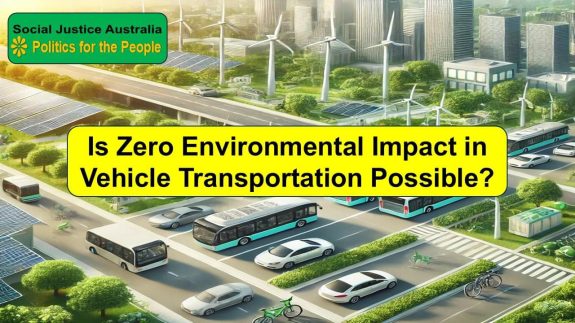Towards Sustainable Transport: Innovations and Challenges for Zero Environmental Impact
Key Ideas
- Understanding the environmental impact of electric and fossil fuel vehicles through manufacturing, operational, and end-of-life considerations.
- The urgency of addressing vehicle pollution due to its contribution to global CO₂ emissions, health impacts, and resource extraction damages.
- Strategies for achieving zero environmental impact in transportation include renewable energy integration, sustainable battery development, and circular economy principles in manufacturing.
As the world confronts the challenges of climate change, the role of transportation in environmental damage becomes a focal point. The article investigates the environmental footprints of electric vehicles (EVs) and fossil fuel vehicles, highlighting issues from manufacturing to end-of-life disposal. While EVs offer zero tailpipe emissions, their production involves resource-intensive mining practices. On the other hand, fossil fuel vehicles contribute to ongoing environmental degradation through emissions and extraction processes.
The urgency of addressing vehicle pollution is emphasized, noting the significant global CO₂ emissions from vehicles and the health impacts of air pollution. The article delves into the hidden impacts of resource extraction for vehicle components, drawing attention to ecological damage and socio-political challenges in sustainable transportation transitions.
To achieve zero environmental impact in transportation, the article proposes strategies such as renewable energy integration for EV charging, sustainable battery development and recycling, and implementing circular economy principles in manufacturing. Examples of innovative initiatives by companies like Tesla and QuantumScape are highlighted, along with the importance of public transportation expansion for sustainable mobility.
Despite socio-political barriers and vested interests, the narrative remains optimistic about the possibilities of sustainable transport solutions. By combining technological advancements, policy changes, and societal shifts, the vision of a transportation system aligned with ecological balance and zero environmental impact can be realized.
Topics
Fuel Cells
Renewable Energy
EVs
Sustainable Mobility
Policy Changes
Renewable Energy Integration
Resource Extraction
Circulate Economy
Manufacturing Impact
Latest News
